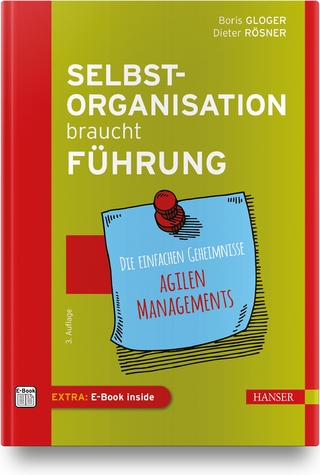
Managing Knowledge in Project Environments
Routledge (Verlag)
978-0-367-19632-5 (ISBN)
Managing Knowledge in Project Environments illustrates how knowledge management (KM) contributes to successful project work. KM is widely practised in project environments, but managers don’t always recognise the knowledge aspects of their work and tend to treat KM as a series of specific activities rather than a way of making project work produce better outcomes in different contexts.
To overcome this challenge, the authors present KM as an integral part of project work and explain it using principles: KM fundamentals that apply anywhere. A series of context factors provides readers with a framework for understanding and thinking about what KM means for their context: their goals, their projects, their organisations and their working environments. Hidden KM is exposed, myths are debunked and practical guidance explains how to build KM into projects and portfolios. The approach is consistent with current guidance including the BS ISO management systems standard for KM and the seventh edition of APM’s ‘Body of knowledge’.
The aim is to help project professionals, sponsors, PMO members and others who can make a difference manage knowledge more effectively in project environments. Managing Knowledge in Project Environments offers everyone involved in project work a definitive short guide to the subject.
Judy Payne works as an independent consultant, practitioner, facilitator, reluctant academic and educator specialising in knowledge management, collaborative working and learning. Eileen J Roden is a Directing Consultant of PMO Learning, a specialist training company for the PMO community, alongside PMO Flashmob, the PMO networking group, and the annual PMO Conference. Steve Simister is Director of the project and programme management group at Henley Business School. He also provides programme management consultancy support to a range of organisations and is a senior review team leader under the Cabinet Office's gateway review process.
List of Figures, List of Tables, About the Authors, Foreword, Authors’ Preface, CHAPTER 1, Managing Knowledge in Project Environments – an Introduction, Knowledge and Knowledge Management, KM in Project Environments, Project Environments, Aim of Managing Knowledge in Project Environments, Intended Readership, The Thinking Behind Managing Knowledge in Project Environments, How Managing Knowledge in Project Environments is Organised, Summary, References, CHAPTER 2, Understanding KM Principles, Knowledge Management Principles, Principle #1: Be Clear about What You Want to Achieve with KM, Principle #2: Develop Working Definitions of Knowledge and KM, Principle #3: Be Clear about the Difference between KM and IM, Principle #4: Create Different Working Environments for Different Kinds of Knowledge Work, Principle #5: Focus on the Big KM Picture rather than the Detailed Tools and Techniques, Principle #6: Experiment, Use Feedback and Adapt, Principle #7: Beware of Elephant Traps, References, CHAPTER 3, Understanding the Context for KM in Project Environments, Introduction, KM Scope, How the Clusters and Context Factors Work Together, Strategic KM Purpose, Project Delivery Method, The Better Business Cases Approach, Knowledge Perspective, KM Objectives and Outcomes, Strategic Knowledge Needs, Culture, The Physical and Virtual Working Environments, Governance and Assurance, Knowledge Boundaries, KM Practices, KM Roles and Responsibilities, KM Structures, Alignment, Alignment, Alignment, Everything Depends on Everything Else, References, CHAPTER 4, Understanding KM in aProjects, Programmes and Portfolios, Introduction, How do I Demonstrate the Benefits of KM? A Short Walk through a Single Project, Building KM into a Single Project, Portfolio-Wide KM, CHAPTER 5, Building KM into a Single Project, Introduction, Overview of KM Through the Project Lifecycle, Getting Started, Stage 1: Developing the Strategic Outline Case, Stage 2: Developing the Outline Business Case, Stage 3: Developing the Full Business Case, Stage 4: Execution, KM in an Existing Project, Stage 5: Handover and Closure and Stage 6: Benefits Realisation, Summary of Steps, References, CHAPTER 6, Building KM into a Portfolio, Overview, Who Can Build KM into a Portfolio? Why Introduce Portfolio-wide KM? The Business Case for Portfolio-wide KM, Approaches to Introducing Portfolio-Wide KM, What KM Services Should the PMO Offer? References, CHAPTER 7, KM and You, Judgement, Practice and Reflection, Learning and Reflective Practice, Personal KM, Over to You, Reference, Index
| Erscheinungsdatum | 04.06.2019 |
|---|---|
| Reihe/Serie | Fundamentals of Project Management |
| Zusatzinfo | 24 Tables, black and white; 23 Line drawings, black and white; 47 Illustrations, black and white |
| Verlagsort | London |
| Sprache | englisch |
| Maße | 156 x 234 mm |
| Gewicht | 385 g |
| Themenwelt | Wirtschaft ► Betriebswirtschaft / Management ► Projektmanagement |
| Wirtschaft ► Betriebswirtschaft / Management ► Unternehmensführung / Management | |
| ISBN-10 | 0-367-19632-8 / 0367196328 |
| ISBN-13 | 978-0-367-19632-5 / 9780367196325 |
| Zustand | Neuware |
| Haben Sie eine Frage zum Produkt? |
aus dem Bereich


